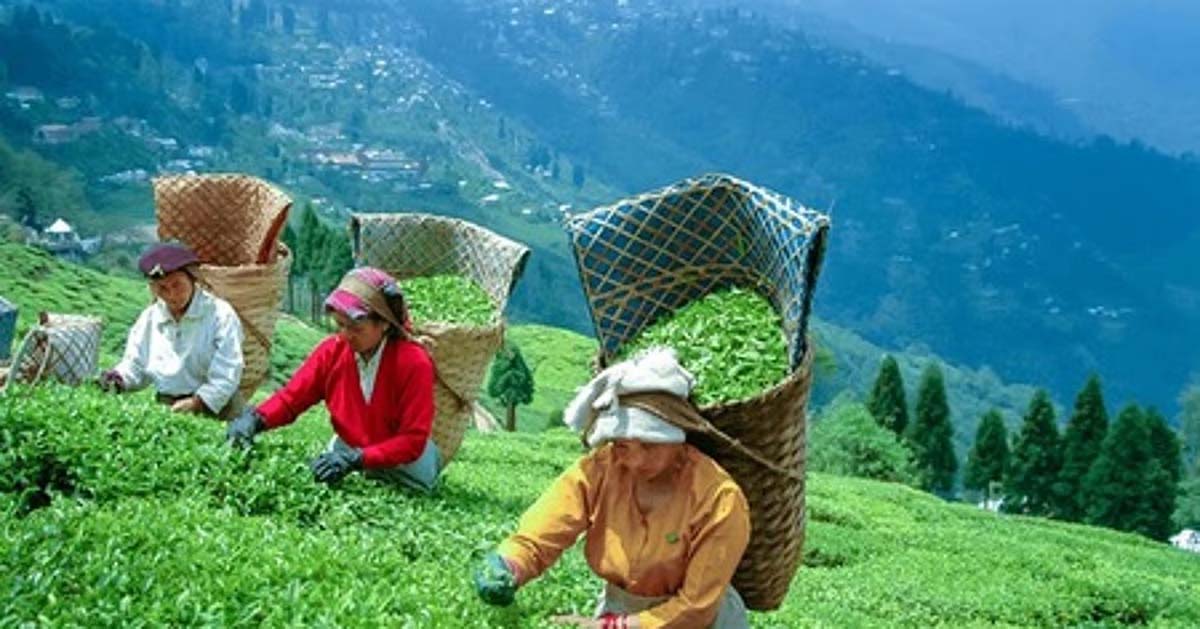KOLKATA, Jan 29: Discontent is rising within the tea sector as growers and exporters express concerns that “subpar quality” imported tea is being mixed with Indian tea and exported without the required multi-origin label by certain parties. This practice is reportedly “undermining prices” and threatening the reputation of Indian tea in international markets.
They further alleged that low-cost tea imported from Kenya, Nepal, Vietnam, and Iran is also being sold domestically, contributing to declining prices despite a production shortfall.
Growers and exporters have also questioned discrepancies between the export figures from the Tea Board of Kenya and the import statistics published by the Tea Board of India for the January-October period of 2024.
“We are aware of accusations that a large volume of tea has been imported duty-free for re-export, with a significant portion of this tea being mislabeled as Indian tea, violating regulations. It is imperative for the Tea Board to investigate and ascertain the facts,” stated Indian Tea Exporters Association Chairman Anshuman Kanoria in a PTI interview.
The practice of re-exporting low-cost varieties as Indian tea detrimentally “affects demand, prices, and the image of Indian tea, harming those exporters who comply with regulations and export only 100 percent Indian tea,” he added.
Kanoria warned that such alleged irregularities could “negatively affect the financial stability and credibility of the industry.”
He elaborated that the Tea (Distribution & Export) Control Order, 2005, stipulates that any tea labeled as Indian tea must consist entirely of Indian tea.
Tea exported that incorporates any imported tea must be marked as multi-origin tea with clearly stated origins, he emphasized.
Additionally, he noted that any re-export must undergo a minimum value addition of 50 percent.
Indian Tea Association (ITA) Chairman Hemant Bangur asserted that the impact of “unregulated tea imports from Kenya, Nepal, Vietnam, and Iran” is significantly detrimental to the industry.
“In the past 8-12 weeks, we have observed a market crash, with prices dropping by nearly Rs 80 per kg in northern India. We have never encountered such an extraordinary import trend. As of October last year, India ranked as the sixth-largest purchaser of Kenyan tea. If these imports are intended for re-exports, they must be sold as multi-origin tea. To my knowledge, this practice is not occurring,” Bangur conveyed to PTI.
In a communication to the Tea Board, the planters’ organization has requested the establishment of standard operating procedures regarding tea imports.
“Countries like Kenya, Sri Lanka, and Indonesia have stringent SOPs regarding tea importation and re-exportation. India lacks such a framework and must not serve as a dumping ground for inferior quality tea,” Bangur stressed.
Sandeep Singhania, President of the Tea Association of India, claimed that some stakeholders are “importing tea from Kenya and Nepal, blending it with Indian tea for re-export and domestic use.”
“These products are marketed as Indian-origin beverages, damaging the reputation of Indian tea. This is a serious issue,” Singhania noted in an interview with PTI.
He appealed to the tea board and the commerce ministry to tackle this pressing matter affecting the industry.
Market prices have declined over the last two to three months, indicating that the influx of foreign tea is harming market sentiment, Singhania remarked.
“Prices are falling even though the crop yield is down by approximately 53 million kgs from January to November in 2024. The import of cheaper tea is a significant factor contributing to this trend,” he explained.
Asian Tea Company Director Mohit Agarwal disclosed that “data from the Kenya Tea Board indicated the African nation exported about 13.71 million kgs of tea to India between January and October 2024, while records from Tea Board India showed our import was only around 1.63 million kgs from Kenya. This discrepancy is nearly tenfold. It may arise from merchant exporters failing to submit import data to the council promptly.”
Agarwal contended that the reputation of Indian exporters is being questioned by foreign buyers, and before “further harm is inflicted on Indian tea exports, the Department of Commerce should conduct a thorough investigation via the Tea Board to cleanse the system and restore the credibility of the Indian tea trade,” he urged.
“The inconsistency in trade figures between the Kenyan tea board and India is due to dishonest practices adopted by certain exporters and importers. They are technically required to report their imports to the tea council, yet stakeholders in the industry are not complying,” Singhania alleged.
Agarwal insisted that the “discrepancy in import figures necessitates a careful review of the data held by the Tea Board and Indian customs for all shipping origins, not solely from Kenya.” (PTI)


Leave a Reply